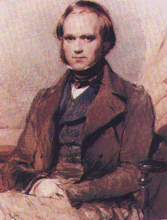
In this chapter Darwin continues his preemptive explanations and justifications for natural selection in relation to anticipated criticisms, this time of the criticism that instinct—a form of behavior—would not be amenable to natural selection. Not so, said Darwin.
Darwin wrote, “It will be universally admitted that instincts are as important as corporeal structure for the welfare of each species, under its present conditions of life. Under changed conditions of life, it is at least possible that slight modifications of instinct might be profitable to a species; and if it can be shown that instincts do vary ever so little, then I can see no difficulty in natural selection preserving and continually accumulating variations of instinct to any extent that may be profitable. It is thus, as I believe, that all the most complex and wonderful instincts have originated.
He argued that instincts are subject to natural selection and are as important as the “corporeal structure” of the organism, and as such was subject to natural selection.
As usual, Darwin supported his arguments with a catalog of examples of instinctive behavior from cats to dogs to birds to the hive-making of bees to demonstrate
variation in instinctual behaviors present in modern groups, variation that would be available for natural selection to act upon.
Darwin ended this chapter with some of the nastier instincts in the animal kingdom, like juvenile cuckoos ejecting siblings from the nest, and concludes that ‘it is far more satisfying “ to look at these unappetizing behaviors not as specially endowed or created instincts, but as small consequences of the general law, leading to the
advancement of all organic beings, namely, multiply, vary, let the strongest live and the weakest die.”
As usual, Darwin supported his arguments with a catalog of examples of instinctive behavior from cats to dogs to birds to the hive-making of bees to demonstrate
variation in instinctual behaviors present in modern groups, variation that would be available for natural selection to act upon.
Darwin ended this chapter with some of the nastier instincts in the animal kingdom, like juvenile cuckoos ejecting siblings from the nest, and concludes that ‘it is far more satisfying “ to look at these unappetizing behaviors not as specially endowed or created instincts, but as small consequences of the general law, leading to the
advancement of all organic beings, namely, multiply, vary, let the strongest live and the weakest die.”


No comments:
Post a Comment